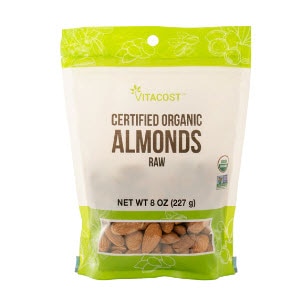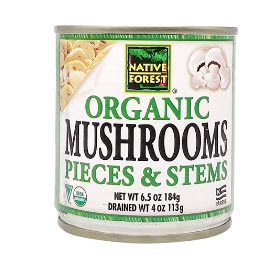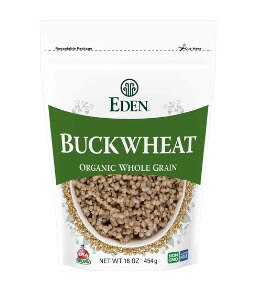Natural foods, defined by their absence of artificial or synthetic ingredients, keep evolving. The demand for these wholesome options gained significant momentum in the 1970s, coinciding with the publication of vegetarian cookbooks and the proliferation of food co-ops. Today, the natural food movement remains vibrant and robust, with an array of trends emerging in 2024.
From the increasing popularity of plant-based foods and the continued adoption of the Mediterranean diet to a heightened focus on regenerative agriculture and botanical ingredients, here are the key trends that will shape the natural food landscape this year.
Plant-based foods and alternative proteins
Demand for natural plant-based foods is on the rise amid the search for alternative proteins. And some legislative fuel might be added to the plant-based food wave in 2024.
A bill sponsored by U.S. Rep. James McGovern, a Massachusetts Democrat, would step up America’s commitment to plant-based foods. Introduced in 2023, the Peas, Legumes and Nuts Today Act (PLANT Act) is awaiting action in the U.S. House.
Regardless of whether the PLANT Act passes, more Americans are bound to be exploring alternative proteins in 2024 and beyond. At its core, the alternative protein movement — anchored by products such as soy and pea protein — seeks to replace animal proteins with animal-free proteins.
Animal-free proteins include:
In a forecast for 2024, Synergy, a manufacturer and supplier of flavorings, extracts and essences, envisions expansion of the alternative protein market.
“The alternative protein market has largely focused on mimicking animal-based meat and dairy products,” the Synergy forecast says. “We expect this segment to continue creating an identity of its own. Consumers want to see alternative protein technology enhance taste, texture and nutritional value, rather than copy traditional meat products.”
The Mediterranean diet
The plant-oriented Mediterranean diet keeps attracting attention. In 2023, U.S. News & World Report rated it the top diet for the sixth consecutive year. And the diet is poised to gain more ground in 2024 as Americans search for additional ways to consume natural foods.
The Mediterranean diet relies on meals assembled primarily from fruits, vegetables, herbs, nuts, beans and whole grains. Dairy, eggs and poultry are eaten in moderate amounts, and red meats are rarely consumed.
Extra virgin olive oil plays a critical role in the Mediterranean diet, thanks to its healthy ratio of saturated and unsaturated fats.
“Olive oil is one of the healthiest foods people can eat, but consumers who lack confidence in it will sadly turn to other, less healthful oils,” Tassos Kyriakides, assistant professor of biostatistics at Yale University’s School of Public Health, says in a news release from the North American Olive Oil Association.
Peaches
Thanks to the Pantone Color Institute, we’ve got peaches on the brain.
The institute named Peach Fuzz its color of the year for 2024. In bestowing that honor, the institute praised the color of the year for capturing “our desire to nurture ourselves and others. It’s a velvety gentle peach tone whose all-embracing spirit enriches mind, body and soul.”
Some folks think the color designation will spur a rise in the popularity of peaches.
In their natural state — not swimming in sugary syrup, for example — peaches can be a healthy addition to your diet.
According to New Jersey’s Rutgers Cooperative Extension of Union County, raw peaches contain relatively few calories and no saturated fats, and are packed with an array of health-promoting compounds, minerals and vitamins. Coupled with vegetables, peaches and other fruits can help decrease the risk of heart disease, stroke and some cancers.
The use of botanicals
As consumers pursue more ways to incorporate natural ingredients into their diets, they’re increasingly turning to botanicals. Botanicals are plant extracts like berries, flowers, fruits, herbs, leaves and roots. They can be added to various foods and even dietary supplements.
According to the Nutrition Insights website, many botanical extracts contains beneficial compounds such as polyphenols, flavonoids and phytonutrients. The University of Minnesota notes that immune-active botanicals such as echinacea strengthen immune functions, while antioxidant botanicals like green tea can prevent cancer, slow down aging and bolster cardiovascular functions.
Regenerative agriculture
Americans keep sowing the seeds of the environmentally friendly domain of regenerative agriculture. Chances are you’ll hear more about it in 2024.
As the Noble Research Institute explains, regenerative agriculture focuses on restoring degraded soils using ecologically based principles.
Margaret Henry, vice president of sustainable agriculture at food and beverage giant PepsiCo, tells Forbes that “regenerative agricultural practices will be pivotal in meeting the increasing demand for food, while also addressing key risks associated with agriculture … .”
Furthermore, regenerative agriculture can help promote the production and consumption of natural foods.
More consumers primed to embrace buckwheat
Buckwheat is a rising star in the universe of natural foods.
Buckwheat isn’t wheat or any other type of grain. Rather, it’s a pyramid-shaped seed that’s harvested from a flowering plant related to rhubarb, explains Harvard Health Publishing.
CHEFiQ, maker of a WiFi-enabled “smart”cooker, emphasizes that buckwheat is a gluten-free, “making it a go-to for those reducing gluten intake due to inflammation concerns, and its prebiotic nature aligns with the increasing focus on gut health.”
The Forks Over Knives website touts buckwheat as a wonderful source of fiber, vitamin B6, magnesium and zinc. Among other things, the seed can be roasted, used in noodles or turned into flour. Foods that might incorporate buckwheat include pancakes, crepes, soba noodles, granola, baked foods, risotto and porridge.




